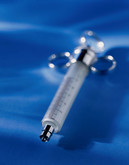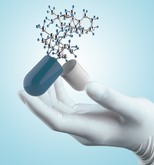Biosimilars/Research
Asian specialists' recommendations for off-patent biologicals in IBD
Gastroenterologists from across Asia have published a list of recommendations for the use of biologicals and off-patent biologicals in inflammatory bowel disease (IBD) in Asia [1].
Arguments against Alberta’s plans to switch patients to biosimilars
In May 2019, the Canadian province of British Columbia introduced a policy of switching rheumatology patients to biosimilars [1]. Now, the province of Alberta is also considering plans to stop coverage of originator biologicals and switch patients to biosimilars for certain indications. The new policy, if introduced, will apply to the approximately 30,000 patients in Alberta living with inflammatory bowel disease (IBD) [2].
Tackling the challenge of safe automatic substitution of biologicals
The costs of biologicals are challenging the sustainability of pharmacotherapy. Affordable biosimilars are expected to trigger competition within the biologicals market. Increasing real-world experience on biosimilars and clinical switching studies have led to position papers supporting the interchangeability of biosimilars with their reference products under the supervision of the prescriber [1]. However, the uptake of biosimilars has been poor in Finland, since physicians have been reluctant to prescribe biosimilars, especially in the outpatient setting. One option to stimulate the uptake of biosimilars is the automatic substitution of biologicals at the pharmacy level.
Efficacy, safety and immunogenicity of adalimumab biosimilar BI 695501
Adalimumab is the most commonly prescribed biological and is approved for rheumatoid arthritis as well as psoriasis, psoriatic arthritis, along with Crohn’s and ulcerative colitis. Its patent life terminated in 2016 in the US [1]. However, in the US AbbVie has stated that, although the composition of matter patent covering Humira expired in December 2016, non-composition of matter patents covering Humira expire no earlier than 2022. The company has therefore made settlement agreements with Amgen and Samsung Bioepis, delaying the launch of biosimilars until January 2023 [2, 3].
Reasons and solutions for the high cost of insulin in the US
The most commonly used forms of analogue insulin cost 10 times more in the US than in any other developed country. In fact, the cost of insulin in the country has more than tripled in the past 10 years [1]. This has led to patients rationing their insulin; something that does not happen in other developed countries, but is common in the US.
Achieving fairer prices for generics and biosimilars
Access to safe, effective, quality assured, and affordable essential medicines and vaccines for all has been identified as key to achieving universal health coverage and financial protection. However, this is not always the case, according to Alessandra Ferrario and colleagues from the Department of Population Medicine, Harvard Medical School and Harvard Pilgrim Healthcare Institute, Boston, USA [1].
Failures when switching patients to biosimilar etanercept
A ‘real-world’ study on switching patients from the originator etanercept, Enbrel, to the biosimilar Benepali (SB4) investigated the reasons why some patients switched back to the originator [1].
Law and ethics of switching to biosimilars in Canada
With healthcare budgets in mind, governments and financial institutions across the globe are planning or implementing non-medical or ‘forced’ switches by cutting drug coverage for reference biologicals and funding only less expensive biosimilars. This is a subject fraught with issues related to both the law and the ethics of switching. Authors Blake Murdoch and Timothy Caulfield of the Health Law Institute, Faculty of Law, University of Alberta, Edmonton, Alberta, Canada, try to address how such issues might affect Canada [1].
Real-life clinical effectiveness of Razumab in wet AMD
The multicentre, retrospective RE-ENACT 2 study evaluated the real-world effectiveness of ranibizumab biosimilar, Razumab, for the treatment of wet age-related macular degeneration (wet AMD). This report presents the results from a subgroup analysis of the RE-ENACT 2 study [1].
Biocad announces positive rituximab results and plans to enter EU market
Russian biotechnology company Biocad has announced plans to enter the European market and has published positive results for its rituximab non-originator biological Acellbia (BCD-020).













